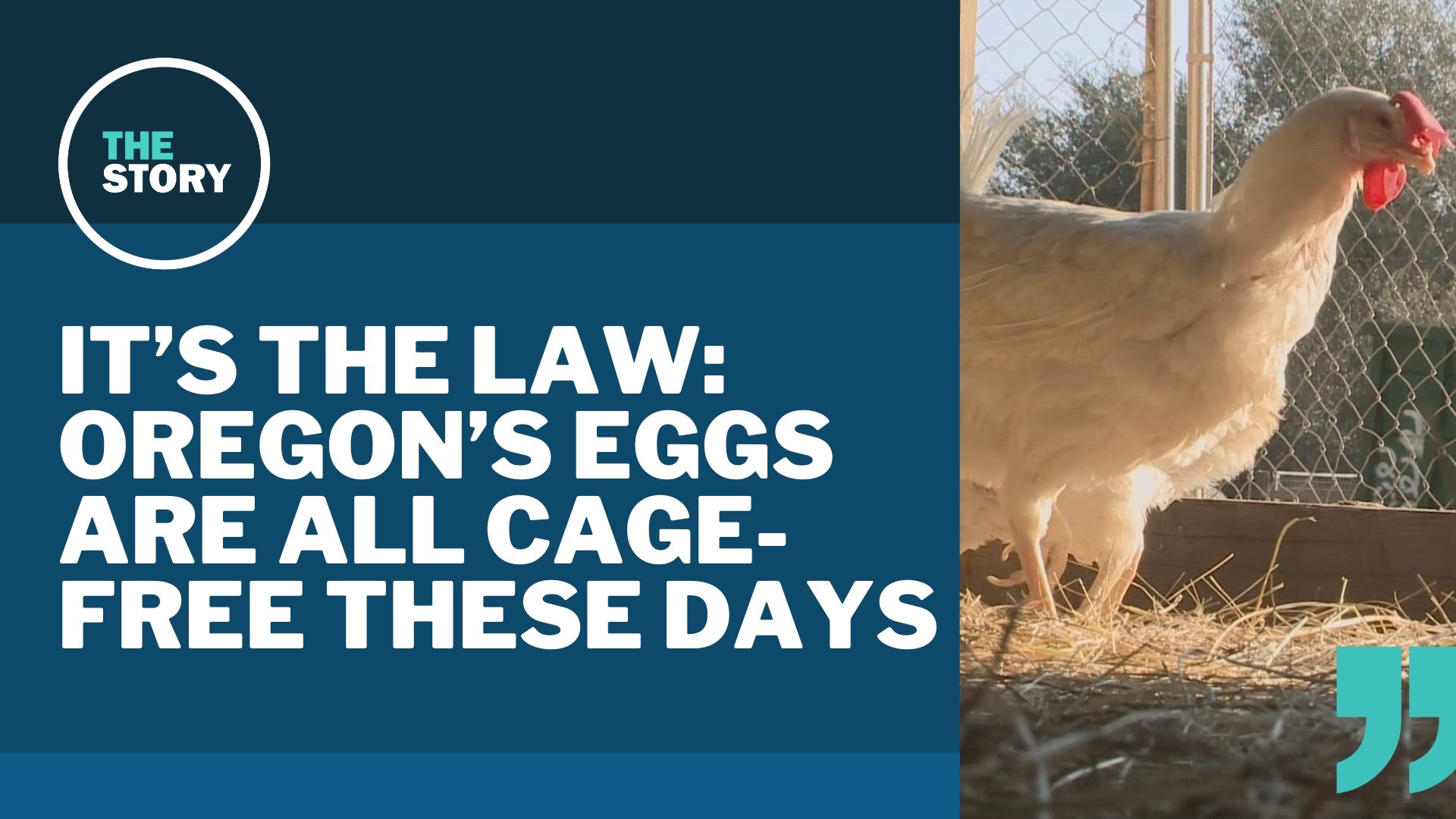PORTLAND, Ore. — Recent social media posts have resurfaced news about a 2019 law requiring that all eggs sold in Oregon be "cage-free," set to take effect in 2024, and at least one Reddit user reported seeing staff removing egg cartons from a grocery store shelf shortly after New Years Day, apparently to comply with the new law.
So what's the deal? Did Oregon really ban eggs that aren't cage-free? Is the law in effect now? And what does "cage-free" really mean?
THE QUESTION
Does Oregon now have a law in effect requiring eggs to be cage-free?
THE SOURCES
THE ANSWER
Yes, a new Oregon law requires all eggs produced and sold in the state to be cage-free, meaning they come from hens that are not kept in specific types of small cages called "battery cages" or "colony cages" that are commonly used in the industry. The law was passed in 2019 and took effect Jan. 1 of this year.
WHAT WE FOUND
The Oregon legislature first stepped in to try to improve living conditions for egg-laying hens with Senate Bill 805 in 2011, which directed the Oregon Department of Agriculture (ODA) to adopt minimum standards for hen cages at all commercial farms.
The law was intended to push the state's egg industry toward larger cages, but it didn't outright ban the use of "battery cages" and "colony cages," according to ODA. Battery cages are single-hen metal cages with about 70 square inches of floor space. Colony cages have a similar design but are longer, holding a tightly-packed row of hens.
SB 805 allowed farms to keep using battery and colony cages built before 2012, according to a 2018 ODA flyer, but required all future enclosures to be "enriched colony systems" — a newer approach with larger group cages that include perches and nesting boxes, according to a 2015 study from UC Davis. They're still pretty confining; the ODA flyer specifies that enriched cages need a minimum of 116.3 square inches of space per hen.
The Oregon legislature revisited the topic with Senate Bill 1019 in 2019, which fully bans battery cages, colony cages and enriched colony systems, requiring all producers to go cage-free. It also prohibits imports of eggs that don't comply with the state's standards. The law included a five-year delay to give the industry time to adapt, which is why it took effect Jan. 1.
About 85% of U.S. commercial egg production involves some form of cage system, according to the industry group United Egg Producers, but a handful of other states have enacted similar cage-free laws in recent years either through their legislatures or voter ballot initiatives, including California, Washington and Massachusetts.
Iowa did the opposite in 2018 and began requiring grocers to stock battery cage eggs alongside cage-free eggs, reasoning that the battery cage eggs were an essential lower-cost option for needy families — though critics argued that was a pretext to protect conventional egg producers, according to coverage from Civil Eats.
So if battery cages and enriched colony systems are out, what does a "cage-free" environment look like for Oregon hens?
SB 1019 defines it as an "indoor or outdoor controlled environment" where hens "may roam unrestricted, other than by external walls" and "are provided with enrichments that allow the hens to exhibit natural behavior" such as "perches, nest boxes and dust bathing areas."
For indoor farms, the new law uses the 2017 cage-free guidelines from United Egg Producers, which outlines options for aviary systems — building-sized enclosures that can be a single level but typically extend floor-to-ceiling and include multiple levels with free movement in between.
This 2011 video from the group Coalition for Sustainable Egg Supply shows what an aviary can look like:
The new law only applies to commercial egg producers with at least 3,000 egg-laying hens. Oregonians with small backyard flocks probably aren't using battery cages anyway, but either way, they don't need to worry about ODA suddenly showing up for an inspection. The law also includes exceptions for things like 4-H events, state fairs and vet visits.
Got a question or a story about Portland or Oregon that you'd like us to VERIFY? Drop us a line at verify@kgw.com.

